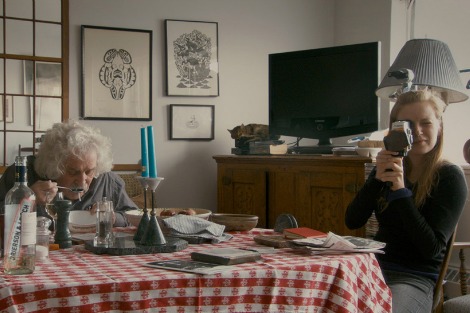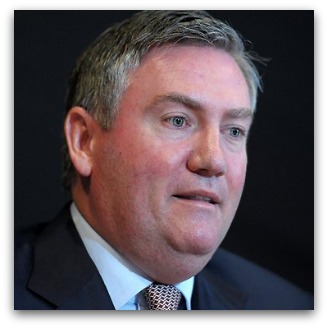Keywords: Myth
There are more than 200 results, only the first 200 are displayed here.
-

MARGARET DOOLEY AWARD
- Megan Graham
- 08 January 2014
1 Comment
At a certain point, emotional and mental overstimulation leads to a sort of emotional numbness, as the brain and central nervous system can only respond to so much. With enough dopamine hits from 'likes' on Facebook, and adrenalin spikes from sensationalised news stories, one's emotions can become blunted. That is, with the notable exception of general irritability borne of expecting one's real life to be as fast-paced as one's online one.
READ MORE 
-

INTERNATIONAL
- Ray Cassin
- 22 November 2013
10 Comments
The assassination of John F. Kennedy 50 years ago elicited a particular quality of grief. It was not only a matter of mourning the violent death of a world leader who, at the time, was much admired. The notion also stuck that something called innocence had been lost because of what had happened in Dallas. That sense has withered under reassessments of Kennedy's character and record in office but it has never been extinguished entirely.
READ MORE 
-

AUSTRALIA
- David Stephens
- 11 November 2013
12 Comments
Remembrance Day has always been for Australians a quieter affair than Anzac Day, particularly as Anzac Day in recent years has taken on a brassy, bragging style. The historian Ken Inglis described Anzac as Australia's civil religion. Although we were the first country anywhere to come together under a national constitution after a mass popular vote, we downplay Federation and venerate instead a failed military campaign in Turkey in 1915.
READ MORE 
-

AUSTRALIA
- Max Atkinson
- 11 October 2013
12 Comments
Since the election there has been much discussion of the idea that, because democracy means respecting the will of the people, elected members have a duty to support the government's 'mandate'. Accordingly, they need not inform themselves and act on their own judgment because the people have spoken. Edmund Burke, the father of conservative political philosophy, would argue that this betrays, rather than serves, constituents.
READ MORE 
-

ARTS AND CULTURE
- Tim Kroenert
- 26 September 2013
Polley approaches the subject with great patience, like an anthropologist who has a deep love for those whom she is studying. In the beginning she instructs her interviewees simply to start from the start and tell it how it was. She no doubt hopes to find clues in the detail, but she also dignifies each participant by allowing them to have a voice. She is self-effacing, yet the questions she asks are bound up in her very existence.
READ MORE 
-

MARGARET DOOLEY AWARD
- Megan Graham
- 11 September 2013
6 Comments
At a certain point, emotional and mental overstimulation leads to a sort of emotional numbness, as the brain and central nervous system can only respond to so much. With enough dopamine hits from 'likes' on Facebook, and adrenalin spikes from sensationalised news stories, one's emotions can become blunted. That is, with the notable exception of general irritability borne of expecting one's real life to be as fast-paced as one's online one.
READ MORE 
-

AUSTRALIA
- Greg Foyster
- 02 September 2013
19 Comments
Throughout the election campaign, both major parties have pledged to address 'cost of living' pressures. But a quick comparison with the economies of other industrialised nations confirms that Australians have nothing to complain about. If prices rise by 5 per cent but incomes rise by 10 per cent, households are better off, even if the cost of a petrol reaches a new pinnacle.
READ MORE 
-

AUSTRALIA
- Peter Stanley
- 26 August 2013
66 Comments
The NSW Parliament recently passed a resolution condemning the Armenian Genocide, conducted by Turkey in 1915. The Turkish Consul-General in Sydney, the foreign ministry in Ankara and even the city council in Gallipoli immediately responded. The resolution disrupts the astoundingly successful charm offensive Turkey has conducted in Australia for years, fostering a positive relationship with Australia through the shared ordeal of Gallipoli.
READ MORE 
-

AUSTRALIA
- Kerry Murphy
- 20 July 2013
15 Comments
PNG is not a resettlement country, has few if any resettlement services for a refugee population and is struggling with its own serious law and order and basic services issues. Australia has subcontracted its international obligations to a former colony. Once again the poorer countries of the world are used to warehouse refugees while the richer countries cherry-pick those they deem suitable for resettlement.
READ MORE 
-

AUSTRALIA
Those who object to Indigenous people being called 'apes' and to white men painting themselves black are dismissed as being politically correct and denying free speech. But how can Adam Goodes choose not to be offended by comments conceived for the very purpose of justifying crimes against the racial group to which he belongs?
READ MORE 
-

ARTS AND CULTURE
Some lessons need to be learned more than once. A young boy punches an older peer in defence of the honour of a girl he admires. The girl is so impressed that she invites the boy on a date. Is violence, then, an approved medium for the defence of romantic ideals? The boy tests this premise twice more, with less gratifying results.
READ MORE 
-

RELIGION
- Andrew Hamilton
- 23 May 2013
6 Comments
The Commonwealth and the Victorian state budgets this year were marked by a contradiction. Both committed more money to incarceration — detention centres and prisons; and both limited programs to help the people confined there. Such contradictions are usually signs of a bad policy that flows from shallow cultural values.
READ MORE 